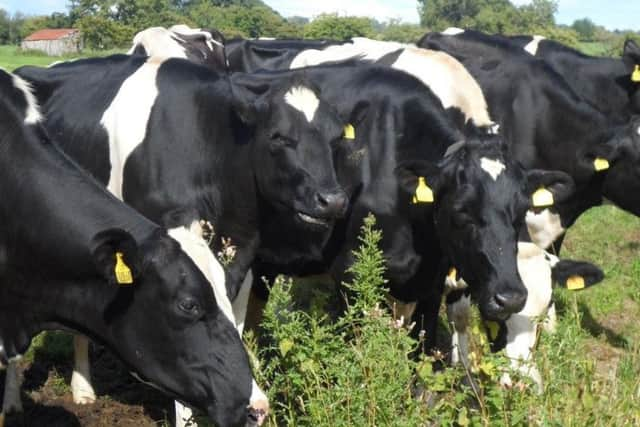Julian Sturdy: Schools can sow seeds of agriculture's bright future


This has naturally made me a passionate advocate for UK farming. British agriculture is the foundation of the UK food and drink industry, our largest single manufacturing sector, employing one in eight people, and contributing over £100bn to the economy each year, including through a growing volume of exports.
Farming also plays a vital role in protecting our environment; maintaining and conserving the land, soil and landscapes that constitute our precious natural heritage.
Advertisement
Hide AdAdvertisement
Hide AdOne of the foremost functions of our education system is to equip young people with the necessary skills to make a contribution to the social and economic life of our country.


Given the significance of agriculture for our economy, environment and society, I firmly believe that the education system should ensure younger generations are able to flourish in this sector, and it should give them the option of doing so at the earliest possible opportunity through the offering of an Agriculture GCSE in schools across England and Wales.
My support for this measure is based on two central arguments. Firstly, the great benefits this course would offer to GCSE-level pupils in helping equip them for a skilled and fulfilling future career. And secondly, the support this would give to the farming sector through providing a greater pool of young, educated workers.
The current position is that pupils have been able to study for an Agriculture and Land Use GCSE in Northern Ireland since 2013, but not anywhere else in the UK. Those with the opportunity to do so can take advantage of the IGCSE qualification offered by Cambridge Assessment, but it is very clear that current opportunities are limited to a small cohort of students.
Advertisement
Hide AdAdvertisement
Hide AdAlthough I understand that the Department for Education has introduced a number of changes to secondary qualifications recently – and wants a period of time to allow these to settle down – a model exists for how to design and teach this subject at GCSE level; suggesting it would be straightforward for the Government to make this available. Has there been any consideration of replicating the content of the GCSE syllabus available to those in Northern Ireland for students in Britain?


I have been sympathetic to an expansion in GCSE options of this kind for a long time, but have been encouraged to argue for this by the intervention of BBC Countryfile presenter Adam Henson, who publicly called for the introduction of an Agriculture GCSE in September last year. He pointed out “If you can get a GCSE in religious studies or business, why not in agriculture?” This is a fair question, and I believe that a GCSE in agriculture has a strong claim to feature amongst current non-core science and mathematics options which include geology, astronomy and psychology.
While Mr Henson’s call was welcomed by the Sunday Times only with a repeat of the not-so-witty farming joke about the scarecrow being ‘outstanding in his field’, it was taken seriously by the Independent Schools Council, who called for further discussion. Will the Department for Education be prepared to participate in similar engagement?
Extending the offering of an Agriculture GCSE option would represent a sensible and logical development of the Government’s plans to expand the provision of vocational and technical education in order to create a better skilled and more productive workforce.This is recognised in the Government’s Industrial Strategy which made the direct claim of putting the UK “at the forefront of the global revolution in farming”.
Advertisement
Hide AdAdvertisement
Hide AdMoreover, it is a business sector that will be at the forefront of unfolding technological development and exciting scientific advances, and a GCSE-level option would be a useful way of alerting school pupils to these opportunities.
Agriculture will be transformed by the ‘fourth industrial revolution’ like any other part of the economy, and it is very important to alert pupils and parents to the option of pursuing a career in what is and will become even more so a high-tech, high-skill industry utilising the latest scientific innovations.
As well as being of benefit to younger people, having an expanded pool of educated and enthusiastic young people would also be very useful for the farming sector and, ultimately, the wider UK food and drink industry. Farming has an ageing workforce, and although it will be some years before I also fit into this category, the average age of a British farmer is currently a youthful 59.
As a nation, we simply cannot afford to get into a position where insufficient numbers of people want to engage in the vital work of producing our food, and managing our countryside, and education our children at an earlier age about how we can use and manage the land, via the mechanism of an Agriculture GCSE, would be one important way of ensuring this gloomy scenario is avoided.
Julian Sturdy is Conservative MP for York Outer.